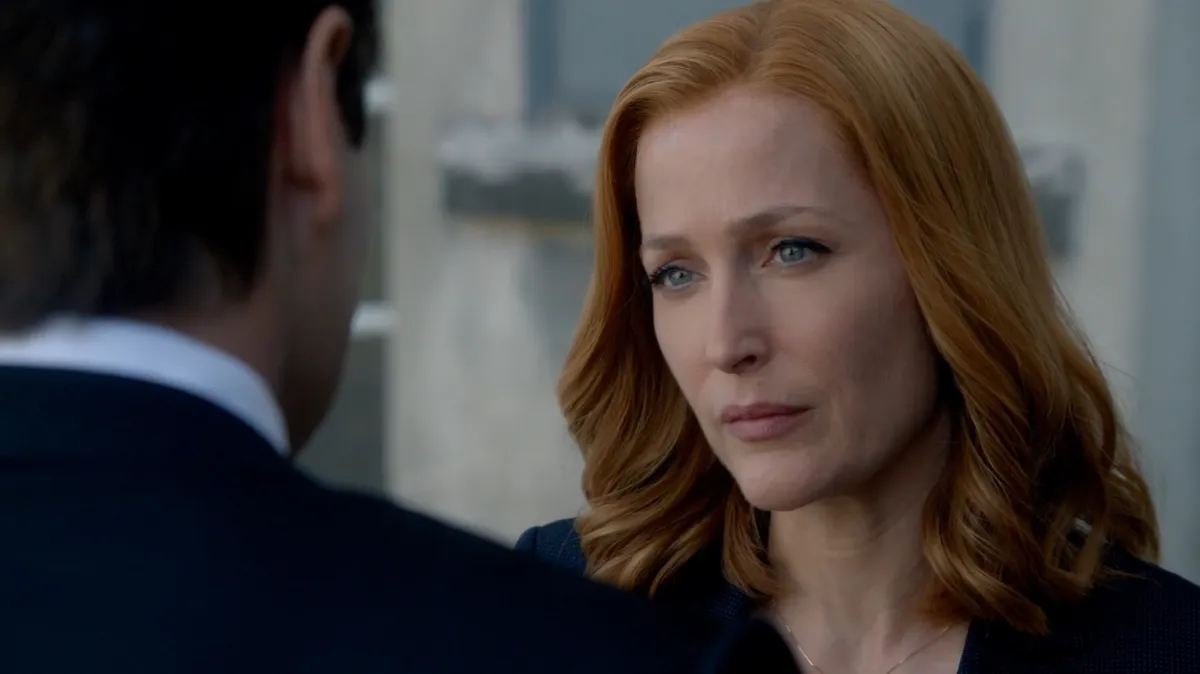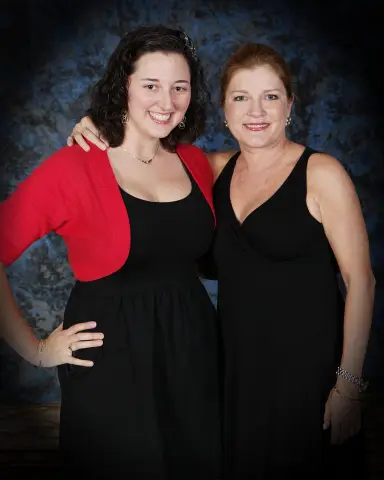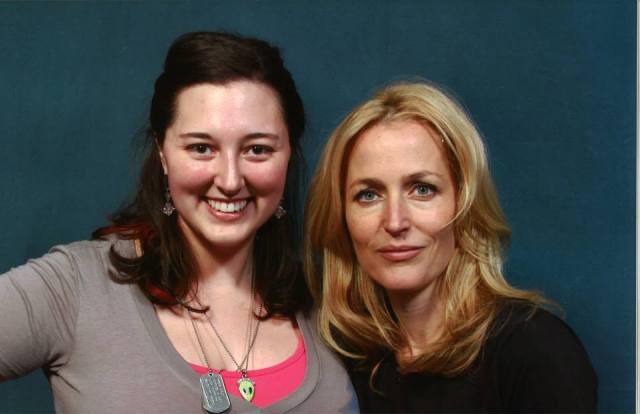After reading the recent XOJane article by Amanda DiGioia on the X-Files revival and Dana Scully’s “mother guilt” about giving her son up for adoption, I found the thoughts and feelings I’ve been processing recently began to coalesce. I am both a huge X-Files fan and an adopted child, so this particular journey of Scully’s hits close to home.
This is not the first time in recent memory where one of my favorite feminist icons has raised the issue of adoption. Last year, the incomparable Kate Mulgrew (Captain Janeway of Star Trek: Voyager and currently Red, prison kitchen overlord on Orange is the New Black) published her memoir, Born With Teeth. In the book, Mulgrew chronicles not only her early acting career, but also her painful decision to give a daughter up for adoption while she was starring in the soap opera Ryan’s Hope. This decision haunted her and she eventually set out on a quest to find her daughter.
Mulgrew (both the woman and the Star Trek character she played so well for seven years) has long been my role model and hero, right alongside one Special Agent Dana Scully. To know that two such important figures for me have both gone through the inverse of my experience as an adopted child deepened the connection I already felt.
Scully’s recent narrative in a TV revival has brought me much joy (and angst) and, coupled with Mulgrew’s story, has caused me to reflect. Only a few months prior to the release of Mulgrew’s memoir, I met my biological mother and her family for the first time, after waiting for three years to hear back from Catholic Services (Mulgrew also went through the Catholic Church to arrange her adoption).
I had been speaking to my half-brother for about a year at that point, and I finally made the trip to the middle of Pennsylvania to meet everyone for a Labor Day weekend barbecue. My husband, my brother, and his partner all took this journey with me, and I couldn’t have asked for a better emotional support system.
I know that you probably expect me to describe the way I felt and how the reunion went. Allow me to say first that there is often a lot of drama surrounding adoption narratives, especially as they appear in the media, whether through news outlets or as subplots in dramatic TV shows and films. At least, there seems to be much drama on behalf of the adopted child, with depictions of the child feeling loneliness, constantly wondering where they came from, and the like. While I did wonder about my biological parents, I did not feel distress when thinking of them.
Growing up, I must say that my parents (when I say “my parents” or “my brother,” I mean my adopted family) were very open about the fact that I was adopted. There was no dramatic reveal when I turned a pivotal age such as 13 or 16; they never hid it from me, even though doing so would have been fairly easy. I even look like my family—dark hair and eyes, pale Irish skin. My brother, I should mention, is not adopted. I have read that often, when a couple is told they cannot conceive, they often go the adoption route and in a few years find themselves expecting. I am grateful every day for my younger brother; he is my ally in all things.
At any rate, meeting my biological family was emotional for me, but not overly so. I had always known they were out there, and it was great to finally put faces, voices, and life experiences to a group of people I am related to but did not grow up with.
My bio-mom gave me up for several reasons, but primarily because she suffered oxygen deprivation at birth and her intellectual reasoning is about on par with an eighth grader. She had my half-brother, Mark (name has been changed), at a very young age, and he simply thought he was the youngest of her and her siblings until told otherwise. She had me nearly 20 years later in a bit of a scandal, seeing as my bio-father was married. I learned that my bio-father is deceased, so any questions about him will remain unanswered—which I’m actually okay with.
Due to my bio-mom’s limitations, she lives with Mark and his wife. Mark is one of the nicest and most enthusiastic guys I’ve ever met. He was so excited to finally connect with me and repeatedly told me how much he and my bio-mom had thought of me over the years.
Perhaps because I already have a great younger brother, I found my older half-brother quite easy to relate to and chat with, despite our age difference. His wife and their adult children—only a bit younger than me!—are also lovely and put me at ease. It’s weird to be an aunt to those of my same generation and a great aunt to their young kids. A great aunt at age 30—that was definitely one unanticipated aspect of discovering my bio-family!
When Mark brought my bio-mom into their living room after I’d arrived with my support system in tow, she did not realize who I was at first, and he had to tell her by using the name she had given me and called me over the years, which is, of course, not my actual name. That part was slightly odd, because you never identify with anything else as basic as your name, right? She cried a lot and hugged me a lot, which I was expecting. I did not actually cry, which is something I worried about later—should I have cried? I felt good about connecting with her, but I did not feel so overwhelmed that I cried. I was ready; I am prepared.
She asked me several times if I was angry with her for giving me up (I was not) and apologized a few times over the course of the day for having put me up for adoption. In hindsight, this does not seem out of place, but I was surprised in the moment that she felt so worried. After all, I had sought them out, and we’d set up this meeting! Would I have done that just to yell at her? That is definitely not who I am. The “adopted” label had never troubled me, and still doesn’t. I think it’s a great gift she and her family gave to my family and to me, even if it was a difficult experience for her.
When people ask me to describe meeting my biological family, I always say it was good yet weird, akin to being in a room full of very nice people who happen to be related to you. It is not a situation that comes with social rules and expectations! There is no rulebook. We just went with it, and we all did the best we could. That is the most you can ask for, right? We are all still in touch; I have seen them since, and it’s going well.
In being a very active viewer of this six-episode season of The X-Files, which is basically all about motherhood, William’s adoption, and Scully’s guilt (Mulder carries some guilt about William as well, but Scully’s guilt is at the forefront), I have the rare opportunity to see an adoptive experience through a beloved character’s eyes.
There is something about seeing Scully, known for being a strong, intellectual force to be reckoned with, brought to tears by her grief over William that stirs a protective instinct in me as an adopted child. I want to tell her it’s ok, because even though a shadow government of villains wasn’t after me (at least I don’t think!), the motives of keeping me safe and giving me a good life were the same for my biological family. As a reasonable adult and fellow woman, I am able to see Scully’s side of things very clearly.
After all, when Scully gave William up, Mulder was in hiding, Spender had just injected William with magnetite, and we all had to endure episodes like “Roadrunners” and “Badlaa” (shudder). Times were dark. Scully still needs to process her grief, something the writers could be focusing on a little more post-“Home Again,” which I felt was a standout episode for both Gillian Anderson and writer/director Glen Morgan.
At this point in The X-Files, the fans—especially those of us that have been here for 20+ years—are not really in it for the conspiracies and shadow governments. They are in it for Scully and Mulder and the emotional attachment these characters foster in the fandom. Whether they are chasing a monster or dealing with the evils of human nature, we want to see how they relate to the experience and to each other. The experience of them as birth parents who have not raised their child is an important one, as seen from all sides of this issue.
In the meantime, I will continue to obsess over Scully’s journey, hoping we get more X-Files in which to truly examine the implications of adoption in an honest, real way. The X-Files team has a unique opportunity here, and as both a diehard fan and a child of adoption, I hope they approach it thoughtfully and give Scully and Mulder the chance to explore the rich, complex emotions that have been set up this season. Chris Carter, if you need a consult, I’m happy to oblige.
Amy Imhoff is a writer and editor who blogs at Shoes & Starships, a geek lifestyle blog that specializes in genre fandom, pop culture, travel, fashion, and feminism. She is a featured convention panelist, podcast contributor, and interviewer. Currently, Amy is an active contributor to ScreenPrism and Legion of Leia. She has her masters in literature, enjoys an obsession with all things British, and likes the smell of old books. Amy is based outside NYC, where she lives with her husband and two silly cats. Find her freaking out about The X-Files and Star Trek @lightstar1013.
—Please make note of The Mary Sue’s general comment policy.—
Do you follow The Mary Sue on Twitter, Facebook, Tumblr, Pinterest, & Google +?










